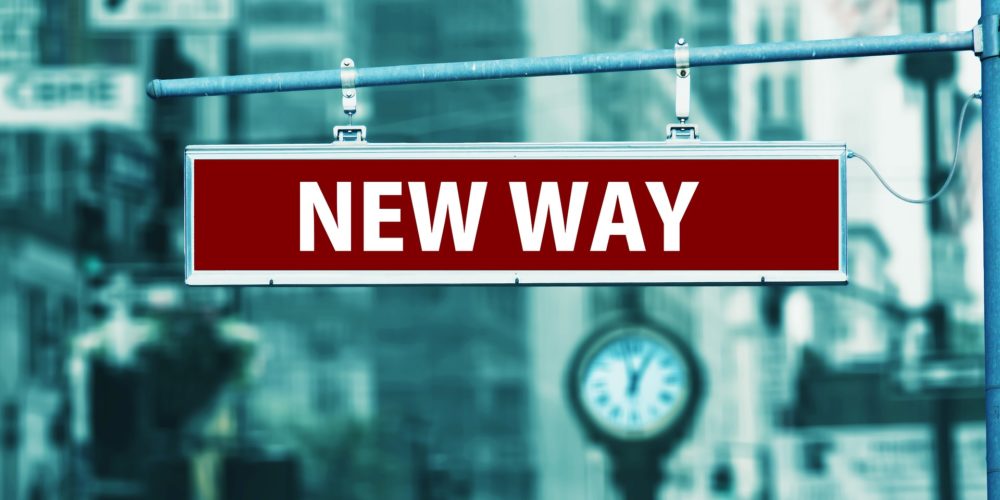To survive, lead the change – don’t deny it

Last week I warned that many large corporates were in ‘slow puncture’ mode – with their current business models deflating slowly, all the while pretending all is well.
I had referenced Marks and Spencer, Britain’s once iconic, now troubled retail giant. In the days since, another icon bit the dust. Thomas Cook, a huge travel group spanning 18 countries, failed to pull off a last-ditch rescue. 22,000 jobs are now on the line. This, too, was no sudden implosion. The tour operator has been ailing for a while, chasing one illusory saviour after another. The fundamental problem was the same: customers moved on as the business stayed still.
But enough of the gloom and doom. Is it not possible to see this coming, to sort yourself out, to engage in corporate renewal? Yes it is – but it’s rare. Let’s take a look this week at an organization that did it – that maker of coloured plastic bricks, Lego.
If the internet and little screens for little fingers and video games should have disrupted anyone, it should have been the famous Danish maker of the toys of yesteryear. And yet there it stands, one of the world’s leading brands, with buoyant sales and actually opening new physical stores all over the world. What’s that about?
Lego has seen its share of trouble. From its founding in 1932 all the way to 1998, the company never posted a loss. But by 2003 its sales were spiralling downwards and it was heavily in debt. The brick was obsolete, consultants told Lego. The future is in diversification: jewellery, clothes, theme parks, they said – all things Lego had no competitive advantage in. It nearly went under.
And yet, today it is called the Apple of toys. Which retailer do you know planning to open 160 new physical locations? All while its erstwhile toymaker competitors are tumbling around it. Is there a lesson here we can all learn? Yes, there is.
Lego embraced the digital world and worked with it. It did not deny it, fear it or ignore it. It saw that the world had moved, and decided to move with it. It went from a maker of physical products to a provider of playing experiences – physical and virtual.
To do this, the company had to engage properly with its customers. It began encouraging interaction and allowing young customers to share their creations online. It created an insights team that spends time with kids, watching them at play and noting their preferences. It looked around and saw that Lego would not make it on its own; it had to become a partner of the hit franchises that the kids of today love. The Lego Movie and The Lego Batman Movie have been superhits. The company releases kits linked to the Marvel Avengers films, and some that allow you to make programmable robots. It has video games that require you to scan lego pieces. It has rolled out Lego Life, a social network for the very young.
None of this assures success. In 2017 the firm hit a sales blip and had to lay off some employees. But that’s par for the course in disruptive times. The point is: Lego gets it.
Do you get it? The real lessons are these. Stay intimately in touch with your customers. See how to blend old with new. Move on from products and channels to experiences. Work with partners who are central to the new world. Try many things, but stay true to what you’re actually good at. Avoid distracting diversifications and misguided mergers.
Most will fall at the first hurdle. They will waste years in denial – asserting that the world they know is still strong and true, that the good ol’ days will be back. When your market is moving on without you, you need to toss your emotions about the past out of the window and start studying hard data. And you need to get out of your internal echo chambers, such as your boardroom, and start watching and tracking customers – not the dying ones also invested in the past, but the ones who will be at the centre of the future.
Easier said than done. Not many incumbents will pull this off; nor will many willingly undergo the wrenching changes in culture and strategy that are needed. They will get into the history books, but not on to the business pages of the future.
(Sunday Nation, 6 October 2019)
Sunny Bindra’s new book, The Bigger Deal, is now on sale.
Image by Gerd Altmann from Pixabay

Buy Sunny Bindra's new book
The X in CX
here »
Popular Posts
- My books of the yearDecember 14, 2025
- Here’s why you should become foolishNovember 30, 2025
- Confessions of an explaining personDecember 7, 2025
- How to listen, really listenNovember 16, 2025
- Is AI hiring your company into oblivion?November 23, 2025















